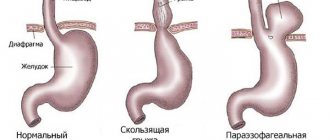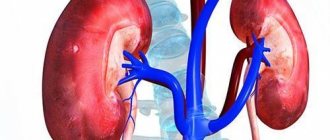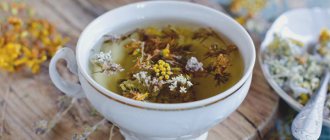Despite the beauty of the plant's flowers, it is the leaves that are of clinical value.
Senna is a constipation herb that has been used as a laxative since the days of doctors and healers. The plant is a beautiful shrub with large yellow flowers. It grows in countries with a tropical climate, especially common in Africa, India, and Sudan.
Other names for the plant are cassia, Alexandria leaf. The leaves of the plant are of clinical value when dried and used as a natural laxative against constipation.
Leaf composition
The medicinal herb senna grows in warm and dry areas. Its leaves contain many beneficial chemicals. When used correctly, a herbal remedy based on senna has a complex effect on the body.
The benefits of therapy are achieved thanks to the components of the herbal leaves:
- anthraglycosides and aglucones (active substances);
- vegetable acids;
- phytosterols;
- resins;
- polysaccharides;
- minerals;
- bioflavonoids;
- vitamins.
The properties of senna herb are recognized by official medicine, so in pharmacies you can purchase the product in the form of dry herb in a pack or filter bags, drops or tablets. If you can collect the herb yourself, it is recommended to make senna tea for constipation.
You can make a medicinal tea from dried Senna leaves.
More about the plant
This herb is called:
- holly;
- cassia;
- Alexandrian leaf.
A low shrub with yellow flowers grows in Africa. In addition, senna is grown in Pakistan, India, Sudan, and Russia. In Arab countries, this plant was used back in the ninth century.
The medicinal herb contains sennosides, as well as adhesives and essential oils, flavonoids. This is far from a complete composition of all useful substances. There are many more of them. The anthraglycosides contained in senna provide a powerful laxative effect. Absolutely all natural analogues cannot compare with this herbal medicine in terms of the degree of impact. Infusion and decoction of senna leaves are considered the best remedies for the body as a laxative.
You can always purchase drugs that contain senna at the pharmacy in the form of:
- granules;
- dried leaves;
- tablets.
Among the standardized drugs, it is worth highlighting the following:
- "Senadexin";
- "Glaxena";
- "Senade".
The laxative effect of senna leaves is to stimulate contractions of smooth muscles - intestinal peristalsis. As a result, food is quickly digested and waste is eliminated without being retained.
Beneficial features
The components of the senna herb have a positive effect on the human intestinal tract. Doctors recommend a herbal remedy mainly for atonic type stool retention, characterized by a decrease in the muscle tone of the rectum and an imbalance of water balance. It is these causes of constipation that senna copes with.
We have selected useful articles on the topic
The use of chamomile for a newborn from colic
18.05.2019
The best folk recipes for the treatment of duodenal ulcers
18.05.2019
How to cure intestinal cancer in unconventional ways
20.06.2019
The active substance in the herb extract, anthraglycoside, irritates the intestinal mucosa, activating the contractile reflex of smooth muscles. As a result of taking the drug, there is a mild laxative effect.
Dry herbs and senna tablets for constipation also accelerate the absorption of nutrients in the gastrointestinal tract, cleanse the body of heavy salts, toxins and waste. When used as a course, the drug has a therapeutic effect.
The benefits of senna for constipation are confirmed by reviews of the use of the drug in the development of hemorrhoids, inflammatory processes in the rectum, the occurrence of fissures around the anus, in preparation for surgery and in the postoperative period (to prevent suture ruptures during pushing).
This plant has a beneficial effect on intestinal function
Overdose
When a person takes 5 or 10 tablets instead of 1, with the expectation that this way the drug will work faster, he is very mistaken. The speed of onset of the effect does not depend on this, because the medicine must pass through the entire gastrointestinal tract before reaching its destination. Due to such ignoring of instructions, an overdose often occurs. It can appear as side effects, but sometimes it is much more serious.
We recommend reading:
Saline laxatives: names of drugs and their use
The most dangerous moment is dehydration due to diarrhea. You can solve this problem yourself with the help of sorbents and a large amount of liquid, sometimes it is rational to use Regidron, it corrects the supply of water and salts in the body (see more about methods of rehydrating the body for diarrhea). In rare cases, medical intervention is required when the loss of fluid and electrolytes is replenished with the help of special intravenous solutions.
In continuation of the topic, be sure to read:
- Fast and mild laxatives + products
- Glycerin suppositories for children: how to use correctly + FAQ
- Osmotic laxatives: names of drugs and their use for constipation
- The use of microenemas for constipation in different age groups
- Laxative suppositories for constipation: list of medications and instructions for use
- How to use magnesium sulfate (magnesia) powder for colon cleansing
- What laxative is suitable for older people?
- Bisacodyl-based laxatives: name of the means and their use
- Lactitol-based laxatives: list of drugs and features of their use
- Saline laxatives: names of drugs and their use
Comparative characteristics
Pharmaceutical companies produce a huge number of drugs to treat constipation, so purchasing a laxative at the pharmacy is not difficult. However, most medications are addictive and also harm the intestinal microflora.
Read also: what medications can quickly cope with constipation.
Senna leaves are a natural remedy whose action is based on the properties of the plant composition of the herb. When comparing the effects of the plant and most laxatives, a number of advantages of the herbal laxative can be identified:
- soft action:
- pronounced laxative effect;
- stimulation of bowel movements after 4–6 hours;
- absence of painful sensations due to activation of contraction of the intestinal walls.
The leaves of the plant are included in a number of laxative drugs: Sealex, Senade, Senadexin, etc.
Description of the plant and variety of herbaceous senna species
The perennial flowering plant of dicotyledonous herbaceous senna is a branched subshrub no more than one meter in height, the root system of which has a rod-like appearance with little branching, which is why it sits quite deep in the soil.
In the wild, the erect stem of the plant has a certain branching pattern:
- with alternate pinnate plates of ovate-narrow pointed leaves in the amount of 4-8 pairs,
- racemose inflorescences of yellow axillary flowers having an irregular shape,
- multi-seeded, angular-heart-shaped pod of a mature brown fruit with a wrinkled surface and flat beans.
In the growing culture of the mountainous south of our country, mainly medicinal annual varieties are cultivated - cassia angustifolia and cassia angustifolia, which can reach a height of about two meters.
The original homeland of medicinal herbs was not only the deserts of Africa, but also the countries of Asia. In this connection, the herbaceous plant received several generally accepted names with such a variety of species:
- alexandria leaf and meccan senna,
- Chinese grass and cassia aquifolia,
- obtuse-leaved cassia and angustifolia cassia,
- Cassia Trumpet and Cassia Eremophila,
- Cassia Hippophales and African Senna,
where all these sonorous names can be read in ancient medical treatises of ancient Arabia, which was part of the famous civilization of pre-Islamic culture.
There is an amazing legend among the Chinese people about the fruits of senna, as if one hermit monk from the celestial school of Taoism regularly ate legume seeds of the plant and thanks to this he lived for over a hundred years, where at this old age he had a slender body, sensitive hearing and perfect vision .
And today there is a fair opinion that senna herb is especially useful for people leading a sedentary lifestyle, helping to cope with eye fatigue and reduce the functional stress of the whole body from physical activity when performing long-term monotonous work.
Thanks to this, it has become a fairly popular pharmaceutical agent in folk and official medicine, capable of curing many serious human diseases.
Use for constipation
You can purchase leaves to relieve constipation at almost any pharmacy. Dispensing is carried out without a doctor's prescription, since the herbal preparation has no contraindications even for children. In addition, the product has a low cost.
The product is available in different forms
Depending on the chosen form of application, the dosage is determined. Before taking, you should carefully read the leaflet describing all the conditions of therapy for constipation.
- Herbal raw materials. The herb is poured with a glass of boiling water and placed in a water bath for half an hour. Strain. Add water to a volume of 0.2 liters, drink ½ tbsp. before bedtime. Course – 3 days.
- Filter bags. Four bags are steamed with 1 tbsp. boiling water for 20 minutes. They drink according to the same scheme as raw materials.
- Pills. Take two tablets at night. The course can last from four days to one month. Children's dose – ½ tablet. From 4 years – 1 tablet.
The dosage of senna tablets and raw materials should also be determined taking into account the effect of the active components on the body. When taking 2-4 g, a laxative effect occurs; when taking more than 5 g, a laxative effect is achieved.
The higher the dosage, the more pronounced the laxative effect will be, so taking the drug uncontrolled is not recommended.
Senna herb - instructions for use
Senna as a medicinal raw material can be purchased at the pharmacy. There it can be in different forms and doses, and it must be accompanied by a leaflet with instructions for use. It is very important to familiarize yourself with them before you start taking them so that complications do not arise later.
On a note! Most safe laxatives contain an extract from senna leaf, but they cost a lot of money. While you can buy senna grass for 60-80 rubles. for 50 g.
Medicinal forms of senna herb
Senna is available on pharmacy shelves in the following pharmaceutical forms:
- Crushed senna leaf. Herbal raw materials are sold in cardboard packages weighing from 25 to 200 g. This form of medicine involves preparing it in a water bath for half an hour. For every 100 ml of water you need to take 1 tbsp. l. herbs. After cooling, the broth is filtered and brought to the original volume with warm water.
- Filter bags with senna leaf. This is a very convenient form to prepare. One or two bags of herbs are poured with boiling water (200 ml) and brewed for at least 45 minutes. In this case, the result is an infusion, not a decoction, so the effect on the body will be somewhat weaker.
- Senna leaf extract in tablets. Each tablet contains a certain amount of sennosides (from 70 to 100 ml). Taking pills takes into account the existing problem, and is often adjusted during the treatment process. It can be found on sale under the names “Senade”, “Gerbion Lascana”, “Senadexin”, “Fitolax”.
- Syrup containing senna herb sennosides. Often contains additional laxatives and sweeteners. Mostly prescribed for short-term rather than chronic constipation. The medicinal name is “Prelaxan”.
- Chewable lozenges. Delicious tablets with senna leaf extract "Sennalax". Can be with vanilla or chocolate flavor. They help well during exacerbation of hemorrhoids or during proctitis.
General indications for the use of senna herb
In medical practice, any drugs containing senna are prescribed in the following cases:
- Preparatory period before x-ray examination.
- Intestinal atony, causing persistent constipation, which is not corrected by nutrition.
- Chronic constipation without diagnosed intestinal obstruction.
- As an adjuvant in the treatment of hemorrhoidal syndrome and anal fissure.
In alternative medicine, the range of uses of senna is slightly wider:
- The disrupted menstrual cycle is restored.
- A complete detox of the body is carried out.
- Weight loss occurs more rapidly.
Senna herb - how to drink and in what doses
The intake of senna leaves is directly related to the purpose of administration and its dosage form:
- A decoction of crushed leaves - taken only warm, ½ cup per day or 1 tbsp. l. three times a day. For children 12-14 years old - one tablespoon, and for children 14-18 years old - two tablespoons.
- Infusion from a filter bag - adults 200 ml three times a day, children 12-14 years old - ¼ cup, 14-16 years old - 1/3 cup, 16-18 years old - ½ cup daily.
- Tablets - prescribed only after 12 years, 2-4 tablets per day.
- Lozenges - adults and children over 12 years old, one chewing cube.
Senna herb - contraindications and precautions
It is not recommended to use senna herb for the following pathologies:
- Plant intolerance.
- Intestinal obstruction.
- Appendicitis.
- Hemorrhoids with bleeding.
- Crohn's disease.
- Peritonitis.
- Hepatitis.
- Stomach ulcer.
- Cystitis.
- Abdominal pain of unknown origin.
- Pancreatitis.
- Disturbances of water-salt balance.
- Conditions associated with potassium deficiency.
- Pregnancy and lactation.
- Spastic colitis.
Important! Senna herb is prohibited for intestinal inflammation, especially during exacerbation, as this can greatly worsen the condition of the digestive system. Therefore, if you have abdominal pain, vomiting, or weakness, you need to exclude this disease before using senna.
During treatment with this remedy, pay attention to these points:
- If you experience any changes in the skin, a burning sensation in the throat or severe abdominal pain, stop taking senna immediately.
- If you have recently undergone abdominal surgery or had a cesarean section, take senna herb for constipation only as a last resort and in the smallest dose so as not to cause spasmodic colic.
- Cleansing the body with this plant occurs only in the first days, and then the beneficial substances begin to be washed out.
- Senna herb is addictive, so the optimal period of use is 7-10 days.
Cooking at home
The use of senna for constipation is carried out at home. At home, you can use not only a pharmaceutical product, but also one you prepare yourself.
It’s easy to make a remedy from senna and raisins at home
To prepare a senna-based laxative, use ready-made raw materials purchased at a pharmacy or collected independently.
- Infusion. The grass (1 tsp) is poured with cold water (0.2 l). They insist for a day. Strain. Drink before bed.
- Mixture. 100 g of all ingredients (senna leaves, prunes, honey, raisins, figs, dried apricots) are crushed in a blender. The mixture is stored in the refrigerator. Take 1 tbsp. l. before bedtime.
- Drink. The leaves of the plant are steamed with boiling water. Add ginger. Drink hot before bed.
It is recommended in the evening, after dinner, to drink tea with senna herb for constipation (add to tea leaves or use instead of it). Regular consumption of the drink helps eliminate and prevent constipation, and also accelerates weight loss.
Possible side effects
It is best to take senna on the weekends, as it is a very effective laxative. Side effects include:
- cramps in the intestines;
- abdominal discomfort;
- sharp and frequent urge to go to the toilet;
- In case of frequent use of drugs containing senna, the intestines may become dependent on this drug. In this case, constipation will return after stopping regular use of the medications.
“The herb causes muscle contractions - this can be dangerous during pregnancy, when expectant mothers take this plant in large doses. Against the background of frequent use of this remedy, nutritional deficiencies may develop. Intestinal dystrophy, as well as disturbances in the functioning of such important organs as the liver, should be added to the list of side effects.”
Laxative tea, which contains:
- 3 teaspoons of senna leaves;
- 2 tsp each buckthorn bark and joster berries;
- 1 teaspoon each of licorice root and anise;
- half a liter of water.
All ingredients are mixed, after which a couple of tablespoons are taken from the mixture and filled with warm water. Infuse for 15 minutes, then strain. You need to consume half a glass of the product three times a day.
Also effective for constipation and, if taken correctly, does not cause side effects, a decoction of Alexandria leaf, which contains 25 grams of senna leaves and a glass of water.
It is necessary to chop the plant and pour liquid at room temperature. Then the product is boiled over a fire for 15 minutes, after which it is filtered and consumed one tablespoon at a time - a maximum of 3 times a day.
Contraindications
The use of senna helps normalize bowel movements. Taking the drug is considered safe, therefore it is recommended for the treatment of constipation in children. However, it should be remembered that even herbal medicines have contraindications.
Senna should not be taken for gastrointestinal pathologies
Senna leaves are contraindicated:
- for acute and chronic pathologies of the gastrointestinal tract;
- with abdominal syndrome;
- if you are sensitive to the active substance;
- with a tendency to an allergic reaction.
The use of laxatives for children under two years of age, pregnant and lactating women is not recommended.
In case of contraindications, overdose or in case of an individual reaction, there is a risk of an adverse reaction in the form of:
- bloating;
- spasms of intestinal muscles;
- dysfunction of the digestive organs;
- abnormalities in the functioning of the heart;
- nausea and occasional vomiting;
- fogginess of consciousness.
If an adverse reaction occurs, you should consult a doctor for advice.
From this video you will learn how to cleanse the intestines using senna:
Who is the treatment indicated for?
Treatment with senna herb has virtually no side effects; it rarely causes allergic reactions and disorders of other organs and systems.
You can use senna herb for the following purposes:
- treatment of constipation (the main reason for taking it);
- prevention of constipation in intestinal atony;
- cleansing the body and removing toxins from it;
- therapy for hemorrhoids and anal fissures;
- treatment of gallbladder dysfunction of the hypokinetic type;
- losing weight and burning fat;
- improving the condition of the gastrointestinal tract.
For hemorrhoids and anal fissures, senna is well suited because it greatly softens stool, thereby facilitating its passage through the hemorrhoids and anal sphincter.
Before starting to take the drug, you must make sure that you have no contraindications to it.
After taking the drug, its effect is observed after 9 hours
Colon cleansing with hay
Colon cleansing with hay is a simple but aggressive technique
Frequent constipation, chronic diseases, acne, constant fatigue, depressed mood are clear evidence of intestinal slagging.
The health of the whole organism begins with the cleanliness of this digestive organ - blood, liver, kidneys, blood vessels, joints. Adherents of natural healing methods often choose senna, a medicinal plant with excellent laxative properties, as a cleansing agent.
Colon cleansing with hay is a simple, effective, but at the same time quite aggressive procedure.
Senna alexandria (Alexandria leaf, Cassia aculifolia) is a rare subshrub. Senna is difficult to find in the vastness of our country, but it thrives in the desert areas of Asia and Africa. This tropical climate lover is a permanent resident on the shelves of Russian pharmacies.
https://www.youtube.com/watch?v=5lIoDrCZaJ0
In folk medicine, senna is positioned as a laxative, choleretic and hepatoprotective medicinal plant. Traditional healers recommend using decoctions, infusions and other senna-based remedies:
- to improve intestinal motility for constipation of various origins;
- to normalize intestinal motility in the postoperative and postpartum period;
- to facilitate bowel movements with hemorrhoids, anal fissures, proctitis.
Cleansing the intestines is achieved due to the laxative properties of senna. The mechanism of action of the plant is very simple. Senna leaves, fruits and stems contain anthraglycosides, namely sennosides A and B.
When broken down in the digestive tract, they irritate the receptors of the colon mucosa, causing a reflex increase in intestinal peristalsis.
As a result, all contents are successfully released from the intestines - feces and other dirt that poisons the body.
Scientific medicine has confirmed the beneficial properties of senna. The above-ground part of the plant, in particular the leaves, is of particular value for modern pharmaceuticals.
They are used as raw materials in pharmaceutical production to produce such popular herbal laxatives as Senade, Senadexin, Tisasen, Pikosen, Glaxena, Ex-Lax, Pursennid and others.
In therapeutic (low) doses, senna has a mild laxative effect. But high dosage, which, as a rule, involves most cleansing methods, can cause severe abdominal pain, rapid diarrhea, and dehydration. This fact should be taken into account when choosing this method of cleansing.
In practice, it has been observed that senna has the ability to reduce body weight. And although in fact weight loss occurs due to the removal of fluid from the body, this plant is often used by those who want to lose weight, especially the fair sex.
Senna decoction perfectly cleanses the intestines and has a beneficial effect on the liver and kidneys. It's very easy to prepare. For this:
- Take 1 tablespoon of dried raw materials, pour 1 glass of cold water.
- Place on low heat, and after boiling, cook for another 5 minutes.
- Let the broth brew for 30 minutes, then strain. It can be stored in the refrigerator, but no more than 24 hours.
Take the decoction two hours after meals, preferably before bedtime. On the first evening, drink ⅓ of a glass. Over the next seven days, increase the dosage slightly (approximately 20 ml each day). On the seventh day, drink the prepared decoction in full (1 glass). Provided normal tolerance, you can extend the use of the cleanser for another three days.
As you increase the dosage, monitor your health.
Of course, you can hardly boast of feeling good at this time: slight dizziness, weakness, moderate abdominal pain, thin stool - this is a normal reaction of the body to senna.
Theoretically, the laxative effect after taking the decoction is observed after 6-12 hours. In practice, everything is strictly individual. There are cases when a person felt the urge to defecate a day after taking the decoction. At the same time, people with a fast metabolism become frequent toilet visitors within 2-3 hours.
This technique will be useful for people suffering from excess weight problems.
According to the authors and practitioners, senna in combination with Holosas and raisins is a powerful cleansing, neutralizing, protective and completely natural remedy.
Holosas (rosehip extract) has a choleretic effect; it enhances the effect of senna, helping to eliminate stagnant processes in the intestines and remove feces with all toxic components.
This drink is prepared according to the following scheme:
- Take 200 g of senna (1 pack), place it in an enamel vessel, pour 1 liter of boiling water.
- Place 200 g of white raisins in another vessel and pour in the same amount of boiling water.
- The compositions are infused for two hours, after which they are combined with each other.
- Add 300 ml of Holosas to the resulting solution (like senna, it can be purchased at the pharmacy).
- The resulting “compote” in a volume of 100 ml is drunk every evening.
The duration of the cleansing course is until the infusion is completed. To avoid disruption of intestinal function, such cleaning is not recommended more than once every six months.
Despite the fact that the laxative properties of senna have been confirmed by scientific medicine, any long-term interference in the functioning of the gastrointestinal tract with the participation of this plant is considered unsafe. Experts warn:
- about the possible development of tolerance (addiction) to senna and the occurrence of lazy bowel syndrome; as a result, the rectum becomes atonic, and the person stops defecating on his own;
- about the excretion of vitamins and nutrients along with a large volume of fluid, which the body invariably loses while taking senna;
- about unpleasant side effects (prolonged diarrhea, intestinal pain, flatulence) if the dose is exceeded.
Doctors recommend using senna and medications based on it only according to instructions and in cases involving the need for a single bowel movement or short-term treatment.
The above information is partially confirmed by reviews of people who practice such cleansing. So, long-term use of senna really provokes addiction, and after it is finished, it is difficult for the intestines to join the natural process of digestion and excretion of feces.
Cleansing the intestines with hay is an effective way to cleanse and heal the body, since this herb, in addition to the intestines, cleanses the kidneys, removes sand and small stones.
Despite the excellent positive effect, cleansing with hay is a complex procedure, intended only for adults and only after consultation with a doctor. Please note that hay cleansing should be done no more than once a month. Senna cleansing is contraindicated for people with gastrointestinal diseases.
So, to complete a course of colon cleansing with hay, which lasts 1 week, you need to prepare a decoction. And for this 1 tbsp. Pour a spoonful of herbs into a glass of clean water, place on the stove and boil over low heat for 5 minutes. After this time, let the broth brew for 20 minutes, then strain it.
The decoction should be taken at night, 2 hours after meals. It is not recommended to eat after taking the decoction. The remaining broth can be stored in the refrigerator for only 1 day.
Now let's talk about the amount of decoction taken. On the first day of cleansing the body, drink only a third of a glass of the broth and observe how your body reacts. In the morning you should experience a urge to defecate, loose stools, and possibly repeated bowel movements.
It is normal if you have slight abdominal pain. If the abdominal pain is severe and the urge to defecate is frequent, the dose of the decoction taken should be reduced.
If you are satisfied with the amount of decoction you take, then gradually increase it so that on the last day of cleansing (7th), you drink a whole glass of decoction.
All diets, cleansing and weight loss methods are for informational purposes only, CONSULTING A DOCTOR IS MANDATORY, otherwise you may cause irreparable harm to your health!
Today, more than ever, youth and freshness are relevant. But is it possible to achieve such results with diets alone? There is a way that can return you to good health and beauty, this is intestinal cleansing: holosas, senna, raisins.
Also, if you are looking for the strongest weight loss remedy, you should definitely read this article. Let's talk about this in order.
IMPORTANT! To bookmark this article, press: CTRL D
DOCTOR, and get a FREE ANSWER, you can fill out a special form on OUR SITE, following this link {amp}gt;{amp}gt;{amp}gt;
An aggressive environment, poor nutrition, and bad habits gradually lead to poisoning of the body.
Due to toxins and other harmful substances, a person feels unwell and cannot regulate his weight normally.
To solve this problem, it is not at all necessary to undergo expensive courses of procedures in clinics. You can restore your youth, energy, strength and health at home.
Colon cleansing with hay at home is an effective procedure. The unique feature of this method is that it promotes:
- cleansing the intestines;
- removing sand and stones from the kidneys;
- losing several kilograms without hunger and a special diet.
But this cleansing technique is not suitable for everyone - there are contraindications and side effects. The hay drink is recommended for use only by adults who have reached the age of 16 years. Children are strictly prohibited from using the product.
The product has some side effects, including increased body temperature. You need to take senna in a course lasting 7 days.
The composition should be taken in the evening, when you do not need to go to school, work or other matters.











